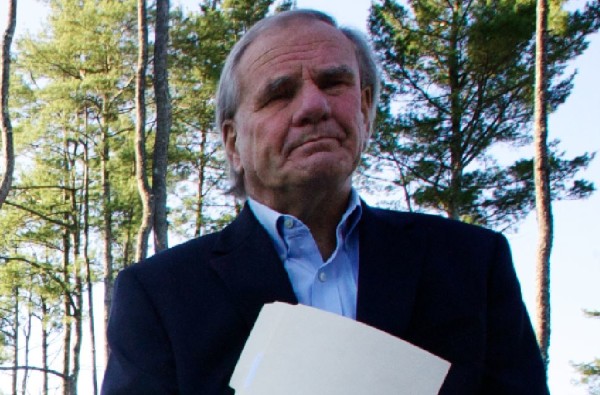Judge Nullifies $14.5m Defamation Claim against Clergy Sex Abuse Crusader
By Darren Fishell
A federal judge has tossed out a jury’s $14.5 million verdict against a Freeport-based advocate for children sexually abused by clergy, finding the plaintiffs’ defamation case had a fatal flaw from the start. U.S. District Court Judge John Woodcock ruled Monday that the federal court did not have jurisdiction over the complaint because most of plaintiff Michael Geilenfeld’s assets and affairs are in Haiti and not Iowa, where he was born. Geilenfeld and the nonprofit for which he worked, Hearts with Haiti, successfully sued Paul Kendrick of Freeport for accusing Geilenfeld of molesting children in his care at an orphanage in Port-au-Prince, Haiti. In his opinion Monday, Woodcock called the introduction of the late jurisdiction question “an extraordinary turn of events.” “To say that the defendant raised this issue late is an understatement,” Woodcock wrote in the introduction to his opinion, “but unlike virtually any other legal issue, a court’s jurisdiction cannot be waived and may be raised at any time, even after a verdict and on appeal, because jurisdiction goes to whether the court can legally hear the case.” The case and trial in Portland centered on whether the sexual abuse claims were true, with the jury hearing testimony of seven men who detailed alleged abuse by Geilenfeld against them when they were children or teenagers staying at his orphanage. The jury decided in favor of Geilenfeld and Hearts with Haiti, awarding them a collective $14.5 million for the lawsuit started in 2013. Woodcock’s ruling Monday nullified the jury’s decision. “The Court assures the parties, particularly the plaintiffs, that it does not lightly take the fruits of such a laborious victory from them,” Woodcock wrote. “But it is this Court’s duty to neutrally find the facts and apply the law, and the Court has concluded that it does not have and never had jurisdiction over the dispute and therefore the Plaintiffs’ hard-earned victory is fated to be short-lived.” After losing the jury trial, Kendrick mounted an unsuccessful appeal of the case in U.S. District Court in Maine. In a second appeal to 1st U.S. Circuit Court of Appeals, the case took its unusual turn. Kendrick’s attorneys argued for the first time that Geilenfeld was “domiciled” in Haiti, not Iowa, and therefore should not have been allowed to bring a complaint before the U.S. court system. “The argument is based on an arcane exception to diversity jurisdiction that deems American citizens domiciled abroad ‘stateless’ and renders them unable to access the federal courts on the basis of diversity jurisdiction,” Woodcock wrote. The 1st Circuit sent that specific question back to federal district court in Maine, a move Woodcock wrote “came from out of the blue,” after an expectation that the appeals court would resolve the issue. Woodcock in his decision wrote the court reviewed all of the evidence submitted to determine where Geilenfeld could claim residence. “Home is a place that you return to without having a reason to do so,” Woodcock wrote. “In the words of the First Circuit, ‘[a] person’s domicile ‘is the place where he has true, fixed home and principal establishment, and to which, wherever he is absent, he has the intention of returning.'” Attorneys for Geilenfeld argued that despite living in Haiti, an Iowa driver’s license, a personal bank account and physical address there indicated he was, in fact, domiciled in the U.S. state. Kendrick’s attorneys introduced evidence to show Geilenfeld intended to remain in Haiti indefinitely. “Mr. Kendrick also finds significance in the fact that Haiti is where Mr. Geilenfeld owns property worth ‘several millions of dollars,’ operates a sizeable organization with people who are like family to him, and even had a crypt constructed for himself,” Woodcock wrote. The finding also supported the court tossing out the verdict for the nonprofit Hearts with Haiti, finding that the case of both plaintiffs were too closely intertwined to toss out one and not the other. “The plain fact is that this case would not have been the same case if Mr. Geilenfeld had not been a plaintiff,” Woodcock wrote. Attorneys for Geilenfeld and Hearts with Haiti could appeal the case to the higher court but have not indicated if they will. An attorney for both parties did not immediately respond Tuesday morning to an inquiry about the potential for a further appeal.
|
.
Any original material on these pages is copyright © BishopAccountability.org 2004. Reproduce freely with attribution.
